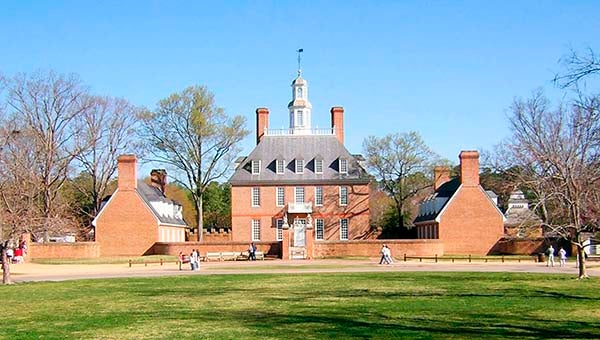Moving to Virginia: A lesson in American history
Published 10:26 am Wednesday, April 22, 2015

Andrew visited Colonial Williamsburg for the first time with his girlfriend, Kayla, in March 2013. Pictured is the Governor’s Palace, once the home of Patrick Henry and Thomas Jefferson. — COURTESY
Prior to moving to Virginia late last year, I knew very little about the people or places associated with the birth of America.
I knew George Washington was the first President of the United States and Commander-In-Chief of the Continental Army; that Jamestown was the first settlement; and that the United States declared its independence from Great Britain on July 4, 1776.
I knew of and for what the Declaration of Independence and the Articles of Confederation stood, and I could recite the National Anthem, Pledge of Allegiance and Preamble by heart. Outside of that, my knowledge of early American history is pretty much a crap shoot.
My historical studies in high school were more focused upon the state that I grew up in, Ohio.
I could tell you all about the Wright brothers, inventors of the first airplane, who were born in Dayton; the 23 astronauts and eight presidents from Ohio, the latter of which is tied with Virginia for the most; Thomas A. Edison, inventor of the light bulb and phonograph, who was born in Milan; Commodore Oliver Hazard Perry, who led the Navy to a decisive victory at the Battle of Lake Erie during the War of 1812; and former Ohio State track-and-field star Jesse Owens, an African-American who won four gold medals at the 1936 Olympics in Nazi Germany.
I was taught about Native Americans and the Great Serpent Mount near Cincinnati; that the Industrial Revolution turned Ohio into one of the largest iron and steel producers in the country; how an abundance of ports and railroads traveling in all directions helped the state become the heart of the nation’s transportation system; and the role that Ohio played in World War II.
It makes sense to teach about and place emphasis on the location in which you live, but that logic hinders me today because of the fact that I no longer live there.
I didn’t realize that my knowledge of American history was lacking until I met my girlfriend in college. She had lived in Virginia for most of her life, and the first time we visited her family in the commonwealth, we drove through Colonial Williamsburg. I was fearful that she would think that I was dumb when I halfheartedly asked her what was so special about the settlement.
My fright was for naught, as she simply proceeded to tell me that it was once the capital of Virginia. But the conversation was revisited that night at dinner with her family, and that’s when I knew that my Ohio high school education hadn’t prepared me for such a moment.
“In what city did the American Revolution come to an end,” her mother asked me, as I sat there with a puzzled look on my face.
“Where did Confederate General Robert E. Lee surrender to the Union?”
“What was the name of the slave that led a rebellion and killed his owners?”
Fast forward to the present day, almost two years after this dinner. I now know that the answers to the aforementioned questions are Yorktown, Appomattox Court House and Nat Turner, whom I wrote about in The Tidewater News’ Progress 2015.
History is fascinating, and was always my favorite subject (does gym class count?) growing up. I just wish that my high school, and schools nationwide for that matter, were forced to teach a curriculum that included early American history. I would have been able to answer those questions correctly when they were first asked if that were the case, as opposed to recalling only lectures about historical information related to Ohio.
It’s now fallen upon my shoulders to learn what I was not taught during my years of formal education. Luckily, living in Virginia is a history lesson of its own.
ANDREW LIND is a staff writer for The Tidewater News. He can be reached at 562-3187.

